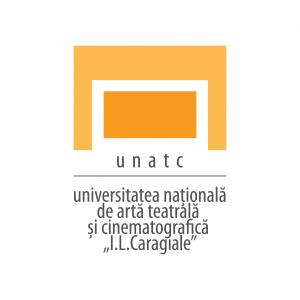University degrees: Courses, Online Courses, Postgraduate, Short-Courses, Summer University
The first theatre faculty in Romania began its activity in 1834 within the Philharmonic School.
A Faculty of Stage Direction opened in 1948 within the Romanian Art Institute, at that time the center of all Romanian higher education in the arts.
1950 saw the founding of both the Institute for Film and the Institute for Theatre I. L. Caragiale (named after the classic Romanian playwright). In 1954, the two institutions merged into the Institute of Theatre and Film I.L. Caragiale. The institute functioned under this name until 1990, when it became the Academy of Theatre and Film – the only such school in Romania with a ranking equal to that of a university, as well as international recognition.
Since 1990, the Academy of Theatre and Film has undergone a continuous reform process. New specializations have been added, such as audiovisual communication and multimedia sound editing (at the Film Faculty), and puppets, marionettes, choreography and scenography (at the Theatre Faculty). The number of students has gone up, while the curricula and study programs have been continuously improved and diversified.
In 1998, the Academy of Theatre and Film became the University of Theatre and Film I.L. Caragiale. In 2001, it became the National University of Theatre and Film I.L. Caragiale.
1) The training of specialists in the field of performing arts and film and related areas (media, multimedia, artistic and cultural marketing and management, artistic pedagogy) at BA, MA and doctoral level, as research university for advanced / artistic creation and education in artistic and professional excellence profile;
2) Promoting the spirit of innovation and excellence, critical thinking and creativity through individual and collective artistic creation, through scientific research and exploitation and dissemination of results in national and international context;
3) The protection of cultural identity, promoting and supporting the diversity of forms of expression and creative content;
4) The protection of academic democratic framework, based on respect for fundamental rights and freedoms;
5) The active citizen participation in society, promoting social inclusion and entrepreneurship for good relations with the labor market.
UNATC assumes its role as national cultural center that contributes to the formation, development, transmission and dissemination of cultural values, and represents a benchmark for the art and culture of our country, a generator of artistic and cultural events.
